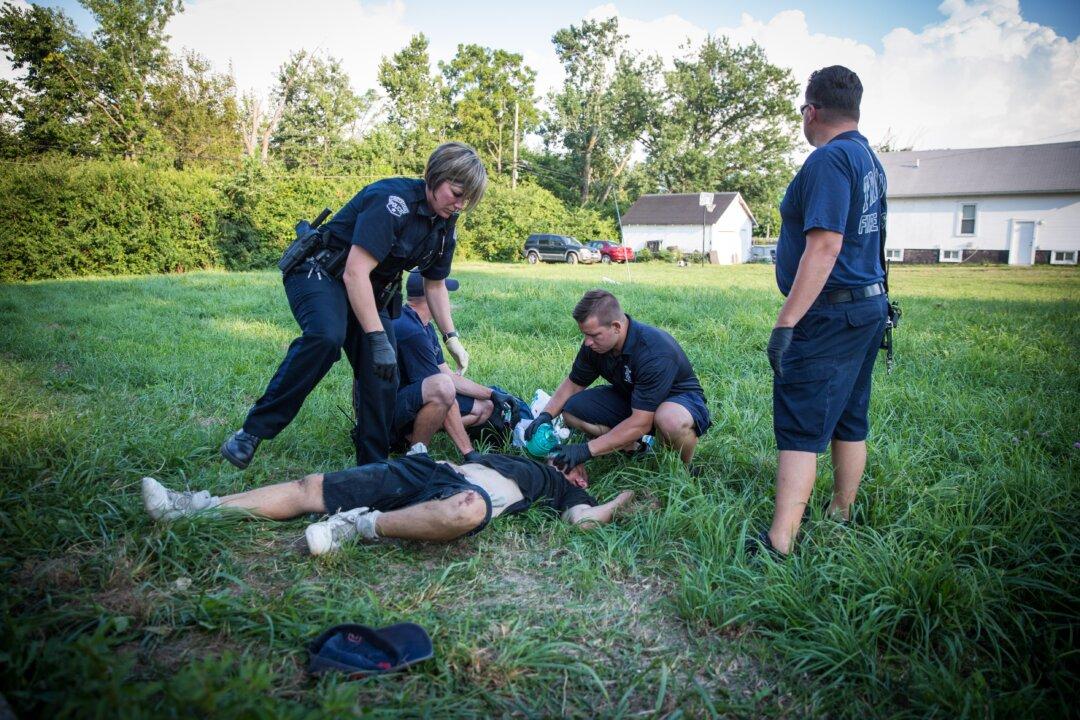The United Network of Organ Sharing reported that the number of organ donors who die from a drug overdose has increased.
“It hurts my heart to think that but the thought has come to my mind,” Tammy Plakstis told The Epoch Times. “It could be a money thing. Fentanyl poisoning is an epidemic and crisis.”
Dylan Plakstis was in a New York hospital when he was declared brain dead. His mother insisted that he be tested multiple times before accepting the diagnosis and pulling the plug.
“Organ donation for me was therapeutic because my son is living on in someone else and of course it’s better to give the gift of life but there’s money to be made in organ donation, so proceed with caution and research the organization that’s approaching you,” Plakstis said.
Plakstis facilitated the donation of her son’s organs through LiveOnNY, the federally designated organ procurement organization for the New York metro region.
“I’ve heard from each of the people who received Dylan’s organs,” Plakstis added. “I spoke to the people. I received letters from them. I know his organs were given to people who needed them.”
Specifically, the United Network found that the number of people who became deceased organ donors due to a drug overdose death, increased from 625 in 2014 to 1,186 in the first half of 2024 nationwide. The 30-year total of deceased organ donors as a result of drug overdose from 1994 to June 30, 2024, was 17,788.
“Organ trafficking is illegal in the U.S., and physicians can assist by understanding where and how patients are securing organs if they are purchased,” Jennie Stanford, a physician and Drugwatch medical contributor, told The Epoch Times.
The Organ Procurement and Transplantation Network, which doesn’t track the type of drug that caused a person’s overdose death, is a government agency that monitors all organ transplants and ensures organs meet certain criteria.
However, there are strict rules around organs that will be accepted for donation upon death.
For example, Austen Babcock’s organs didn’t meet the criteria for donation because he had been dead 15 hours from fentanyl poisoning before being found, according to his mother April Babcock.
The 25-year-old died in 2019 in Maryland.
“He was 2-by-4 ice cold and white as a ghost,” Babcock told The Epoch Times. “There was nothing salvageable in my son’s body. The morgue came, picked him up and that was it. He went to the funeral home of my request.”
A year later, Babcock founded the Facebook group, “Lost Voices of Fentanyl” where there are 35,000 friends and family members of people who’ve died of fentanyl poisoning.
She has been actively advocating ever since for state and federal governments to take action to stop the flow of fentanyl into the United States.
“A drug dealer sold my son something that he did not even know he was getting,” Babcock said. “He was buying cocaine but received a deadly poison in the cocaine, which was fentanyl.”
The grieving mother testified before the Maryland General Assembly as well as the U.S. Congress during a hearing about China’s role in fueling fentanyl overdoses.
“Congress needs to create a subcommittee on organ donation and fentanyl deaths,” Babcock said. “I know a lot of parents that have donated their kids’ organs. We need a committee to investigate if there’s a connection.”
Families Against Fentanyl founder Jim Rauh is advocating for fentanyl to be treated as a weapon of mass destruction in order to compel the U.S. government to cut off the supply of illicit fentanyl and track down dealers.
Rauh founded the group in 2018 after his son Thomas died of fentanyl poisoning in 2015 at 37 years old.
“The fentanyl that killed my son and a young lady was sent to a drug dealer in Akron, Ohio,” Rauh added. “They were able to trace that shipment back to China.”
The Organ Procurement and Transplantation Network did not respond to requests for comment.
https://www.theepochtimes.com/us/organs-of-drug-overdose-victims-fuel-10-year-rise-in-donations-5705333?ea_src=frontpage&ea_cnt=a&ea_med=top-news-5-top-stories-2-title-0





No comments:
Post a Comment